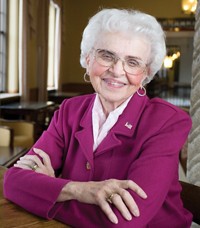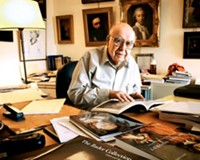Advertisement
Grab your lab coat. Let's get started
Welcome!
Welcome!
Create an account below to get 6 C&EN articles per month, receive newsletters and more - all free.
It seems this is your first time logging in online. Please enter the following information to continue.
As an ACS member you automatically get access to this site. All we need is few more details to create your reading experience.
Not you? Sign in with a different account.
Not you? Sign in with a different account.
ERROR 1
ERROR 1
ERROR 2
ERROR 2
ERROR 2
ERROR 2
ERROR 2
Password and Confirm password must match.
If you have an ACS member number, please enter it here so we can link this account to your membership. (optional)
ERROR 2
ACS values your privacy. By submitting your information, you are gaining access to C&EN and subscribing to our weekly newsletter. We use the information you provide to make your reading experience better, and we will never sell your data to third party members.
People
ACS Receives Hach Funds
Multi-million-dollar gift is largest in society's history
by Linda Raber
January 26, 2009
| A version of this story appeared in
Volume 87, Issue 4

EARLIER THIS MONTH, Kathryn Hach-Darrow, cofounder and chair of the Hach Scientific Foundation, and Madeleine Jacobs, the American Chemical Society's executive director and CEO, inked documents transferring the foundation's approximately $33 million to ACS. The society will continue the foundation's programs, all of which support high school chemistry teaching. In recognition of the gift, the ACS headquarters building in Washington, D.C., will be renamed the Clifford & Kathryn Hach Building of the American Chemical Society.

Hach-Darrow, her son Bruce Hach, and her grandson Bryce Hach, executive director of the foundation, approached ACS last April to discuss the gift. They chose ACS as the recipient because the society "represents permanence and stability, and it truly embraces chemistry on a national level," Hach-Darrow says.
"The foundation's programs are a natural fit in our portfolio," Jacobs says. "They complement what ACS has been doing in high school chemistry but do not in any way duplicate current programs." ACS will continue the Hach Scientific Foundation's support of a scholarship program for undergraduate chemistry majors pursuing careers in teaching chemistry, a scholarship program for degreed chemists in other professions seeking to pursue careers in teaching chemistry, and outreach grants to chemistry teachers.
The partnership between entrepreneurial analytical chemist Clifford Hach and marketing-savvy Kathryn Carter began when they met as undergraduates at Iowa State University during the early days of World War II. They married in 1943 and started Hach Co. in 1947. The company's first product was a water-analysis system. Specifically, Clifford invented a water-testing kit based on ethylenediaminetetraacetic acid and Kodak's eriochrome black T industrial dye. The kit measured calcium and magnesium in water.
During the next 52 years, the company achieved commercial success by developing and selling reagents and instruments that simplified quantitative analysis. Clifford died in 1990. Nine years later, Kathryn sold the company to Danaher Corp., where it continues under the Hach name.
"My grandfather lived his life for chemistry," Bryce Hach tells C&EN. "It was his hobby and his business. He couldn't wait to get to work on Monday." Wanting more people to be able to share his passion, Clifford started the Hach Scientific Foundation in the early 1980s to financially support chemistry students. "Clifford started college in the Depression, and getting enough money put together to go to school was very difficult," Hach-Darrow explains. "He felt very strongly that if he could do one thing, he wanted to make it possible for young people to get at least a bachelor's degree in chemistry."
Hach-Darrow thinks Clifford would be pleased with the gift to ACS. "He had a lot of Iowa farmer in him. He was a very practical down-to-earth kind of person. He would say, 'This is the right move at the right time. ACS is a good place, and there will be a future for the Hach Scientific Foundation through ACS. In fact, I think it will grow there.' "




Join the conversation
Contact the reporter
Submit a Letter to the Editor for publication
Engage with us on Twitter